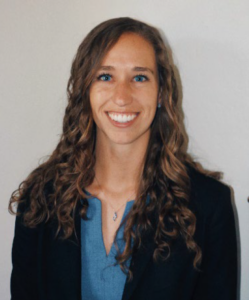ESG for Energy & Utility Companies
October 11-12, 2022 | Online :: Central Time
As the world strives to tackle climate change, income inequality, social activism, supply chain issues, and increasingly stringent regulations around reporting. ESG metrics and reporting in the energy and utility sector has become a business imperative.
Furthermore, shareholders and stakeholders alike are calling for more transparency as they scrutinize companies they want to associate with based on their ESG scores and reporting. As a result, nearly every publicly held company and many privately held firms are facing new pressure to adopt, measure, disclose and improve their ESG policies and programs.
Now on its second year, this virtual symposium will bring together a curated cross-sector of energy & utility leaders and experts to discuss the latest Environmental, Social, and Governance (ESG) trends and development impacting the sector.
Learning Outcomes
This symposium will provide attendees an opportunity to:
- Review ESG metrics and trends that matters most to utility & energy companies
- Discover the latest standards, policies and regulations impacting ESG performance in the energy & utility sector
- Discuss what ESG disclosure, reporting, and compliance look like for the energy & utility sector
- Hear directly from Edison Electric Institute about ESG industry initiatives and reporting template they have developed for the electric and gas companies
- Navigate what it takes to build ESG competency and fluency across all levels of the company
- Examine the role ESG plays in accessing capital
- Identify how employee health and well-being fit into the ESG ratings
- Translate ESG information into business intelligence
- Identify and manage ESG risk in the supply chain
Tuesday, October 11, 2022 : Central Time
8:45 – 9:00 a.m.
Log In and Welcome
12:30 – 2:00 p.m.
Lunch Break
9:00 a.m. – 5:00 p.m.
Conference Timing
9:00 – 10:00 a.m. :: Navigating ESG Ratings and Disclosure
- How have ESG ratings and disclosure platforms grown in significance and how are they used?
- What are the most prominent and widely used platforms in the energy and utility sector?
- How to prepare for and ensure the best scores on ESG ratings
- Is there an industry standard, will there be?
- The intersection between rating and reporting, how the two reinforce each other
- Communicating success, how to translate scores to key stakeholders
- Risks associated with both ratings and disclosure and how to mitigate them
- How to develop and execute ESG strategies to maximize the benefits of ratings and disclosure
Dennis Curtis, Partner, ESG and Sustainability Services, PwC Energy, Utilities and Resources
Brittany Wiese, Director, ESG and Sustainability Services, PwC Energy, Utilities and Resources
10:00 – 10:15 a.m. :: Morning Break
10:30 – 11:30 a.m. :: ESG Reporting and Compliance
- Navigating the board role
- Role of Proxy voting/shareholder resolutions
- Corporate disclosure and transparency
- Communication: Investor relations & ESG officers
- How can companies effectively communicate their corporate purpose to shareholders and other stakeholders?
- What corporate governance reforms would communicate a commitment to purpose?
- Measuring, communicating with investors on environmental, social risks and priorities
- Social issues: DE & I
Melissa Tominack, Manager, Corporate Sustainability, American Electric Power
11:30 a.m. – 12:30 p.m. :: ESG in the Energy & Utility Sector: An Ever-Evolving Landscape
- ESG trends/overview
- Perspectives on ESG
- Industry and sector differences for energy and utility companies
- What matters most and why?
- Standards, policies and regulations: Impacts on ESG performance
- Looking ahead
- Evolving ESG issues and their potential future impact
Fiona Baker, Strategic Sustainability Science Program Manager, Electric Power Research Institute
Mathew Lee, ESG Researcher, MSCI
12:30 – 2:00 p.m. :: Lunch Break
2:00 – 2:45 p.m. :: Updates on ESG Industry Initiatives for the Electric & Gas Utility Sector
- Early drivers that catalyzed the industry’s ESG efforts
- Evolution of ESG shareholder activism in the utility industry
- Industry sustainability highlights
- EEI/AGA industry reporting initiatives
- Outreach to financial community and other stakeholders
- ESG/Sustainability reporting template
- Natural Gas Sustainability Initiative (NGSI)
- Priority ESG issues for continued exploration
Aaron Cope Jr., Director, Investor Relations, Edison Electric Institute
2:45 – 3:00 p.m. :: Afternoon Break
3:00 – 3:45 p.m. :: Human Capital in ESG
- Diversity, Equity & Inclusion
Robert Matthews, Chief Diversity Officer, Exelon Corp.
3:45 – 4:15 p.m. :: ESG, Credit Impact and Risk Assessment
- ESG integration into credit analysis
- Assessing business’ material E, S, and G risks
- Benchmarking the company’s ESG policies, procedure, and performance against peers
Ivana Ergovic, Director, Corporate Ratings – U.S. Utilities, Power & Gas, Fitch Ratings
4:15 – 5:00 p.m. :: Q&A Session
5:00 p.m. :: End of Day One
Wednesday, October 12, 2022 : Central Time
8:45 – 9:00 a.m.
Log In
9:00 a.m. – 12:30 p.m.
Conference Timing
9:00 – 10:00 a.m. :: Why ESG Matters in Accessing Finance
- ESG financing framework
- Why has ESG become more relevant in evaluating a prospective project or target for acquisition?
- Institutional investor considerations
- Assessing ESG risks and opportunities
- ESG and Fiduciary duties
- ESG opportunities in transaction financing
- ESG due diligence and risk mitigation
- How potential liabilities could affect costs, cash flow and the deal timeline
- Insight into how the company’s ESG performance could affect its most valuable intangible assets including reputation, brand value, trust and relationships
- Post-closing considerations
Karen Wawrzaszek, CFP, CTFA Regional President, BNY Mellon Wealth Management
10:00 – 10:15 a.m. :: Break
10:15 – 11:15 a.m. :: Climate Goals for the Future
Chris Benjamin, Director, Corporate Sustainability, PG&E Corporation
11:15 – 11:45 am. :: Managing ESG Risk in Supply Chain
Chris Peterson, Executive Director, Electric Utility Industry Sustainable Supply Chain Alliance (EUISSCA)
11:45 a.m.- 12:30 p.m. :: Best Practices for Driving Performance and Improving ESG Ratings
- ESG engagement and stewardship: what it means
- Monetizing the value of ESG
- Leveraging corporate disclosure and transparency to drive performance, while also improving scores
- Communicating the value of ESG to create action internally
- Driving change at the company through ESG strategy/goals
- Aligning ESG efforts with corporate purpose
- Prioritize frameworks to decode the metrics overload and maximize resources
- Communicating the value of ESG with investors
- What strategies are most effective for communicating corporate purpose and ESG efforts to shareholders and other stakeholders?
- What activities, goals, or initiatives do you highlight with investors and how?
- What are the major environmental and social risks and priorities and how does that inform your strategy?
- Building ESG competency and fluency across all levels of the company
- Need for change: utilities need to get credit in ESG worlds for helping reduce emissions across the economy
Caitlin Smith, Senior Director, Regulatory, External Affairs & ESG, Jupiter Power
Julie Yunker, Director of Sustainability and Government Affairs, Hawaii Gas
Heather Quinley, Managing Director, Duke Energy
12:30 p.m. :: Program Adjourns
 Fiona Baker, Strategic Sustainability Science Program Manager, Electric Power Research Institute
Fiona Baker, Strategic Sustainability Science Program Manager, Electric Power Research Institute
Fiona Baker is a Sr. Project Manager at the Electric Power Research Institute (EPRI) where she is responsible for leading the Strategic Sustainability Science (P198) research program, working to develop the tools and resources that electric power companies can use to establish and enhance their sustainability program, integrate a sustainability mindset throughout their organization, and enable a more sustainable economy throughout the communities they serve. Fiona has held several previous roles at EPRI, most recently as a Technical Advisor where she was responsible for developing and maintaining relationships, understanding industry issues, and managing technology transfer with utility advisors working in the areas of Sustainable Ecosystem Stewardship, Safety, and Energy Systems and Climate Analysis. Before that she was a Research Portfolio Manager responsible for review of the strategy, development of the portfolio, and creation of marketing plans for eleven research programs in the Energy and Environment sector. Fiona graduated with honors from North Carolina State University graduating with a Bachelor of Science in Environmental Sciences focused on Renewable Energy and a minor in Business Administration. She is currently pursuing an Executive MBA from U.C. Berkeley’s Haas Business School
 Chris Benjamin, Director, Corporate Sustainability, Pacific Gas and Electric Company
Chris Benjamin, Director, Corporate Sustainability, Pacific Gas and Electric Company
At Pacific Gas and Electric Company (PG&E), Chris Benjamin is the Director of Corporate Sustainability and leads a team responsible for PG&E’s sustainability efforts and engagement, including working to integrate and align PG&E’s sustainability strategy with its business strategy. This involves working collaboratively to measure, communicate, and elevate PG&E’s sustainability commitment, including working to reduce PG&E’s carbon footprint and better serve vulnerable communities. His team is responsible for a variety of sustainability reporting, benchmarking, and strategic policy initiatives and actively engages with a broad range of stakeholders, including PG&E’s external Sustainability Advisory Council, to guide and strengthen PG&E’s sustainability strategy.
Prior to joining PG&E, Chris was a Vice President at Eastern Research Group and a Policy Associate for the National Recycling Coalition. He received a Masters of Environmental Management from Duke University and a B.A. from Boston College.
 Aaron Cope Jr., Director, Investor Relations, Edison Electric Institute
Aaron Cope Jr., Director, Investor Relations, Edison Electric Institute
Aaron Cope is Manager of Investor Relations at the Edison Electric Institute. In this capacity, Aaron is responsible for managing EEI’s Investor Relations and Treasury Executive Advisory Committees (EACs) and leading EEI’s Financial Conference. He also is a leader for EEI’s ESG/Sustainability committee, the Chief Financial Officers EAC, and the Wall Street Advisory Group.
Prior to his position at EEI, Aaron held an analyst position with the American Association of Blacks in Energy (AABE), where he designed and delivered programming to educate members and stakeholders on energy policy issues and industry trends.
Prior to the start of his career in energy, Aaron worked at a law firm where he managed paralegals in their insurance litigation practice, and has interned with the U.S. Department of Transportation, the district office for Congressman Richard Neal (MA-1), and on Capitol Hill for Senator Charles Schumer (NY).
Aaron has served on the AABE DC Chapter Executive Board as a Vice President and is the current Chair for the Legislative Issues and Public Policy (LIPP) Committee. Aaron holds a Bachelor of Resource Economics, Master of Science in Management, Master of Business Administration, and a graduate certificate in Cybersecurity Management and Policy. Aaron is a native of Massachusetts.
 Dennis Curtis, Partner, ESG and Sustainability Services, PwC Energy, Utilities and Resources
Dennis Curtis, Partner, ESG and Sustainability Services, PwC Energy, Utilities and Resources
Dennis is a partner and leads PwC’s ESG & Sustainability Trust Solutions Practice for the Energy, Utilities and Resources sector. In this role at PwC, Dennis works with clients to implement strategies to improve their ESG reporting and communicate progress to their investors and other stakeholders. Dennis brings extensive experience in delivering ESG reporting strategy, materiality assessments, risk assessment, information governance and data quality, measurement, reporting and assurance services. He has more than 20+ years of internal controls reporting, risk management, and compliance experience serving energy, utilities, and sustainable energy companies.
Dennis has specialized in assisting organizations with their Environmental, Social and Governance (ESG) reporting needs, including alignment with recognized reporting standards, as well as ensuring the underlying data supporting disclosures are investment grade. He focuses on helping companies report sustainability and other ESG metrics to meet the new reality of stakeholder expectations as they articulate their story and value to society.
Dennis graduated with his Masters of Accountancy and Bachelors of Accountancy from the University of Missouri. He is a CPA and a CISA and a member of the American Institute of Certified Public Accountants and the Information Systems Audit and Control Association.
 Ivana Ergovic, Director, Corporate Ratings – U.S. Utilities, Power & Gas, Fitch Ratings
Ivana Ergovic, Director, Corporate Ratings – U.S. Utilities, Power & Gas, Fitch Ratings
Ivana Ergovic is a Director in Fitch Ratings’ U.S. Corporate Finance Utilities, Power & Midstream Group. Her primary responsibilities include corporate credit analysis and industry research within the Utilities, Power, and Gas sectors.
Ivana joined Fitch in February 2020 following more than a decade as an equity research analyst covering utilities. Prior to Fitch, Ivana held buy side and sell side equity analyst roles at Millennium Management and Jefferies & Co.
Ivana earned a BA from The University of Zagreb and a graduate degree from Columbia’s School of International and Public Affairs.
 Mathew Lee, ESG Researcher, MSCI
Mathew Lee, ESG Researcher, MSCI
Mathew Lee develops climate- and energy-related research for MSCI’s Americas ESG and climate team. He previously was an environmental consultant on corporate sustainability and energy policy and has worked on environmental issues at CDP, the World Bank and the European Bank for Reconstruction and Development. Mathew holds both master’s and bachelor’s degrees from Tufts University in international affairs and environmental studies.
 Robert D. Matthews, Vice President, Talent and Chief Diversity, Equity, and Inclusion Officer, Exelon Corp.
Robert D. Matthews, Vice President, Talent and Chief Diversity, Equity, and Inclusion Officer, Exelon Corp.
Robert D. Matthews became vice president and chief diversity, equity, and inclusion officer in June 2021 and recently assumed responsibility for Talent Management and Organizational Effectiveness. In this role, Robert is responsible for designing enterprise-wide strategies that facilitate a diverse and inclusive environment, supporting business objectives and positioning Exelon as a recognized leader in DEI. Robert also serves at Chair for Edison Electric Institute (EEI)’s DEI Executive Advisory Council. The council serves as a forum for working with members on emerging DEI issues, as well as enhanced reporting of member company best practices.
Robert previously served as vice president, workforce development and Exelon Utilities chief of staff in early March 2020. In that role, Matthews was responsible for the advancement, oversight and strategic direction of Workforce Development (WFD) across Exelon and oversaw the operations of the utilities CEO’s office. Prior to his role at Exelon Utilities, Matthews served briefly as Chief of Staff at Baltimore Gas & Electric. Previously, he served as director, talent management and talent acquisition for BGE. In that role, he had oversight for the talent management, organizational development and talent acquisition functions and was responsible for creating and implementing a cohesive strategy to attract, acquire, develop and retain talent. He also drove BGE’s diversity and inclusion recruitment initiatives and was responsible for leading internal and external efforts to shape BGE as a leader in workforce development. Prior to joining BGE in 2005, Matthews held leadership positions in human resources at print and digital solutions company Vertis, Inc., including manager of compensation and employee services. Matthews spent his early career with CareFirst BlueCross BlueShield where he also worked in human resources roles.
Matthews earned a bachelor’s degree in business, and graduate degrees in business and counseling.
 Chris Peterson, Executive Director, Electric Utility Industry Sustainable Supply Chain Alliance (EUISSCA)
Chris Peterson, Executive Director, Electric Utility Industry Sustainable Supply Chain Alliance (EUISSCA)
Chris is the Executive Director of the Electric Utility Industry Sustainable Supply Chain Alliance (EUISSCA), an organization of 26 leading electric power utilities, representing over $115B in spend, pulling sustainability into their supply chain practices. Chris is also a Director at Anthesis Group working primarily in the area of sustainability strategy assessment and development. For nearly 20 years, Chris has worked to harness the power of business to drive social value and support organizations to perform sustainably.
 Caitlin Smith, Senior Director, Regulatory, External Affairs & ESG, Jupiter Power
Caitlin Smith, Senior Director, Regulatory, External Affairs & ESG, Jupiter Power
Caitlin is an energy professional with over a decade of experience in regulatory policy. For the last nine years, she has focused on electricity market design and has worked both as an advocate for policies that have enhanced our electricity markets and as an advisor on the commercial and financial impacts of energy policy. Her broad experience in government and regulatory affairs, as well as in public affairs, have led Caitlin to becoming a well-versed speaker and author across topics ranging from clean energy to wholesale energy market design.
Caitlin is the Senior Director of Regulatory, External Affairs & ESG with Jupiter Power— a leading energy storage developer and operator. Caitlin’s work focuses on aligning market incentives, resiliency, and the energy transition. She recently founded Jupiter Power’s Women’s Professional Development Initiative. Caitlin has in-depth experience with the ERCOT market and was the first in-house counsel for the Independent Market Monitor to ERCOT and currently sits on ERCOT’s Technical Advisory Committee.
Caitlin holds a Bachelor of the Arts in Economics from the University of Texas, a Juris Doctor from Pennsylvania State University and a Master of Laws in Environmental & Natural Resource Law and Policy from the University of Denver.
 Heather Quinley, Managing Director, ESG & Sustainability, Duke Energy
Heather Quinley, Managing Director, ESG & Sustainability, Duke Energy
Heather Quinley is Managing Director, ESG & Sustainability, at Duke Energy. Her role helps enhance Duke Energy’s reputation as an ESG (environmental, social, and governance) leader. Her team is responsible for setting the enterprisewide ESG strategy including disclosures and helps foster transparency in both reporting and partnerships at the national and local level.
Heather has been with Duke Energy for more than 20 years. Prior to her current role, Heather was Director, Stakeholder Engagement, and led external affairs engagement in Ohio, Kentucky and Indiana. Heather led a team focused on three areas: philanthropy, energy and environmental affairs, and external engagement. She facilitated the Duke Energy State Presidents’ Advisory Councils in the Midwest region, and assisted the Duke Energy State Presidents with engaging a variety of external stakeholders in the local community. She facilitated a six-part, multi-year Integrated Resource Planning stakeholder engagement process in Indiana and helped invest over $4 million annually in education, workforce development and environmental programs in Duke Energy Foundation investments.
In addition, Heather managed environmental stewardship and public-private partnerships. In concert with the State Department, she managed a public-private
partnership between U.S. and Chinese industry and government (Duke Energy, ENN, the City of Charlotte and the City of Langfang) on joint clean technology projects
Melissa Tominack, Manager, Corporate Sustainability, American Electric Power
Melissa serves as Manager of Corporate Sustainability at American Electric Power. She brings over 13 years of industry experience in sustainability and ESG reporting, performance and strategy.
Melissa is responsible for AEP’s sustainability reporting efforts and ESG disclosure strategy. This includes monitoring emerging risks and opportunities and identifying technology and tools to drive efficiency and ESG performance. Her experience comprises of serving as author of AEP’s sustainability report, standardizing ESG disclosure efforts and processes, setting sustainability goals, developing and implementing company policies, and conducting ESG materiality assessments.
Melissa is currently seeking her MBA at Ohio University and has a degree in Strategic Communications from The Ohio State University. She currently serves as Co-Chair of EPRI’s Sustainability Interest Group and is an active member of AEP’s Women @ Work employee resource group. Melissa lives in Columbus, Ohio with her husband, three daughters and Labrador Retriever, Otis.
 Karen Wawzaszek, CFP, CTFA Regional President, BNY Mellon Wealth Management
Karen Wawzaszek, CFP, CTFA Regional President, BNY Mellon Wealth Management
Karen is a recognized Impact Investment, “Environmental Social & Governance” (ESG) Investing, and Philanthropy Thought Leader. Karen has more than two decades of experience advising entrepreneurs, ultra high-net worth families, institutions, and non-profit organizations through holistic financial planning and investment programming. She is sought out to speak on podcasts and at conferences, including the UN Global People’s Summit, and contribute to articles. She has previously led the impact initiatives for two privately-held family offices and launched the impact-oriented investment platform for a $5B registered investment advisory practice.
Karen is active and passionate about community engagement. In addition to co-founding Pomona Society, a 501(c)(3) organization that focuses on economic empowerment for women and families in Washington, DC, Karen serves on the Board and is Chair of the Investment Committee of the Meyer Foundation and a board member of Teach for America. Her prior Board involvement includes the Washington Area Women’s Foundation, the Shakespeare Theatre Company, Black Girl Ventures, and Eastside Domestic Violence of Seattle, Washington. Karen was named a Washingtonian Top Financial Adviser in 2018 and 2020 and is a graduate and featured member of Leadership Greater Washington’s Signature Program. She holds a Bachelor’s degree in Finance from Wichita State University. She is a CERTIFIED FINANCIAL PLANNER™ professional and a Certified Trust and Financial Advisor (CTFA).
 Brittany Wiese, Director, ESG and Sustainability Services, PwC Energy, Utilities and Resources
Brittany Wiese, Director, ESG and Sustainability Services, PwC Energy, Utilities and Resources
Brittany is a Director in PwC’s ESG and Sustainability practice based in Chicago and has spent her 12+ year entire career dedicated to the energy sector providing assurance services to a number of large regulated utility companies and renewable energy projects. Her recent ESG project experience includes data quality assessments over ESG metrics and assisting a Fortune 250 company with the design and implementation of processes and controls over their ESG disclosures and metrics. Brittany is a Certified Public Accountant (CPA).
 Julie Yunker, Director of Sustainability, Government & Community Relations, Hawaii Gas
Julie Yunker, Director of Sustainability, Government & Community Relations, Hawaii Gas
Julie Yunker is the Director of Sustainability, Government & Community Relations at Hawaii Gas focused on the company’s sustainable and clean energy initiatives. She provides strategic direction in leading the company’s Environmental, Social and Governance (ESG) efforts across the organization. She implemented Hawaii Gas’s first Sustainability Committee that is focused on several initiatives including a greenhouse gas emissions inventory to establish reporting baselines and to support emissions reduction targets. Julie also leads the company’s participation in the Global Real Estate Sustainability Benchmark (GRESB) reporting and the UN Global Compact. She represents Hawaii Gas on local and national organizations including the Renewable Natural Gas Coalition, Hawaii Bio Economy Trade Organization, and the Hawaii Green Growth Sustainable Business Forum including the ESG subcommittee tasked with developing localized ESG metrics for Hawaii.
She holds a B.A. in Economics from the University of Georgia and an MBA from San
Diego State University. She is also a Certified Energy Manager and a LEED Accredited
Professional.
We will be using Microsoft Teams to facilitate your participation in the upcoming event. You do not need to have an existing Teams account in order to participate in the broadcast – the course will play in your browser and you will have the option of using a microphone to speak with the room and ask questions, or type any questions in via the chat window and our on-site representative will relay your question to the instructor.
- IMPORTANT NOTE: After November 30 you will not be able to join a Teams meeting using Internet Explorer 11. Microsoft recommends downloading and installing the Teams app if possible. You may also use the Edge browser or Chrome.
- You will receive a meeting invitation will include a link to join the meeting.
- Separate meeting invitations will be sent for the morning and afternoon sessions of the course.
- You will need to join the appropriate meeting at the appropriate time.
- If you are using a microphone, please ensure that it is muted until such time as you need to ask a question.
- The remote meeting connection will be open approximately 30 minutes before the start of the course. We encourage you to connect as early as possible in case you experience any unforeseen problems.
Please Note: This event is being conducted entirely online. All attendees will connect and attend from their computer, one connection per purchase. For details please see our FAQ
If you are unable to attend at the scheduled date and time, we make recordings available to all attendees for 7 days after the event
REGISTER NOW FOR THIS EVENT:
ESG for Energy & Utility Companies
October 11-12, 2022 | Online
| Individual attendee(s) - $ 1195.00 each | |
Volume pricing also availableIndividual attendee tickets can be mixed with ticket packs for complete flexibility |
|
| Pack of 5 attendees - $ 4,780.00 (20% discount) | |
| Pack of 10 attendees - $ 8,365.00 (30% discount) | |
| Pack of 20 attendees - $ 14,340.00 (40% discount) | |
Your registration may be transferred to a member of your organization up to 24 hours in advance of the event. Cancellations must be received on or before September 09, 2022 in order to be refunded and will be subject to a US $195.00 processing fee per registrant. No refunds will be made after this date. Cancellations received after this date will create a credit of the tuition (less processing fee) good toward any other EUCI event. This credit will be good for six months from the cancellation date. In the event of non-attendance, all registration fees will be forfeited. In case of conference cancellation, EUCIs liability is limited to refund of the event registration fee only. For more information regarding administrative policies, such as complaints and refunds, please contact our offices at 303-770-8800
Credits

EUCI is accredited by the International Accreditors for Continuing Education and Training (IACET) and offers IACET CEUs for its learning events that comply with the ANSI/IACET Continuing Education and Training Standard. IACET is recognized internationally as a standard development organization and accrediting body that promotes quality of continuing education and training.
EUCI is authorized by IACET to offer 0.9 CEUs for this event.
Requirements for Successful Completion of Program
Participants must log in and be in attendance for the entirety of the event to be eligible for continuing education credit.
Instructional Methods
PowerPoint presentations, video, and Q&A will be used in the program.
Upon successful completion of this event, program participants interested in receiving CPE credits will receive a certificate of completion.
Course CPE Credits: 10.5
There is no prerequisite for this Course.
Program field of study: Specialized Knowledge
Program Level: Basic
Delivery Methood: Group-Live
Advanced Preperation: None
 EUCI is registered with the National Association of State Boards of Accountancy (NASBA) as a sponsor of continuing professional education on the National Registry of CPE Sponsors. State boards of accountancy have final authority on the acceptance of individual courses for CPE credit. Complaints regarding registered sponsors may be submitted to the National Registry of CPE Sponsors through its web site: www.nasbaregistry.org
EUCI is registered with the National Association of State Boards of Accountancy (NASBA) as a sponsor of continuing professional education on the National Registry of CPE Sponsors. State boards of accountancy have final authority on the acceptance of individual courses for CPE credit. Complaints regarding registered sponsors may be submitted to the National Registry of CPE Sponsors through its web site: www.nasbaregistry.org
Who Should Attend
- Utility and Energy Companies, Municipalities, Cities with titles:
- Chief ESG Officer/Sustainability Directors/Managers
- Chief Value Officer
- CSR Professionals
- Board Directors and Managers
- CFOs/Finance Officers/Treasurers
- Compliance Personnel/Risk Officers
- Investor Relations Officers
- Environmental Policy Directors/Managers
- Climate Risk Director/Officer/Manager
- Risk Managers/Operational Managers/Internal Auditors
- Chief DEI Officer/HR
Finance sector specialists in asset management, ESG/Sustainability and Investment Bankers, Buy-side/Sell-side analysts
- Financial Advisors/Investment Managers
- Portfolio Managers
- Investors
- General Counsel/Lawyers
- Financiers looking to invest or fund energy or utility infrastructure projects
- External Auditors.
- Regulatory and Government Agencies
- Rating Agencies
